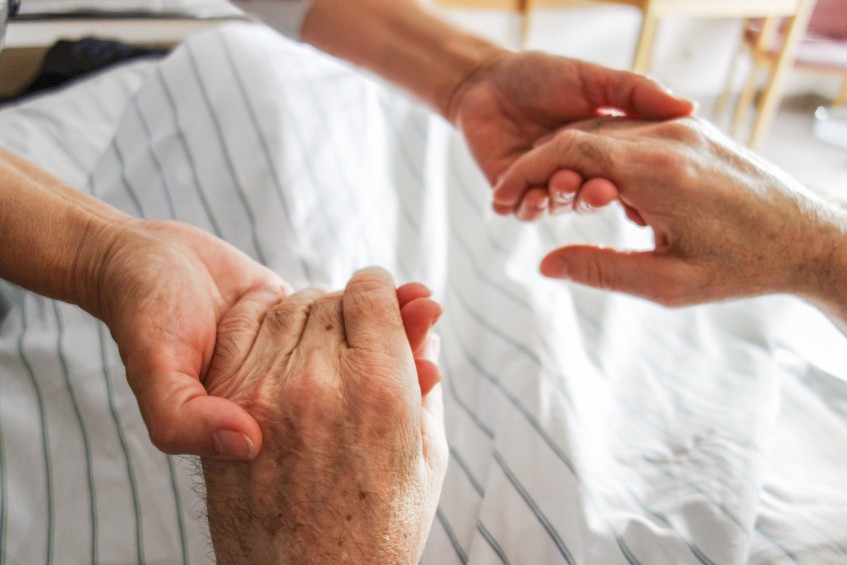Catholic Service providers unite against Euthanasia

Catholic health providers across Western Australia of health have last week come together to release a joint statement against the state’s proposed controversial voluntary euthanasia laws. Photo: Sourced.
Catholic health providers across Western Australia of health have last week come together to release a joint statement against the state’s proposed controversial voluntary euthanasia laws.
The health, aged care, community and disability services organisations, including Mercy Health, St John of God, Little Sisters of the Poor, MercyCare, IdentityWA, the Catholic Doctors’ Association, Mount La Verna Retirement Village, Southern Cross Care, Catholic Homes Inc and Nazareth House, emphasise that they all currently abide by State laws that prohibit one person ending or assisting to end the life of another.
“Our values,” said the statement, which is signed by the CEO, Manager or Chair of the respective organisations, are based on the belief that every person is inherently valuable and should be cared for from conception to natural death.
“We don’t believe helping someone to end their life, directly and intentionally, can ever be an expression of genuine care for them,” the statement said.
The organisations note that they don’t hold this position alone.
“When it comes to the clinical risks and uncertainties of euthanasia and assisted suicide we stand with the majority of medical practitioners, as well as the World Medical Association and the Australian Medical Association.
“Our long history of accompaniment and non-abandonment shows that we recognise and respond well to the pain and suffering of others, especially the frail, the infirm, the sick and the dying.
Director of the LJ Goody Bioethics Centre, Rev Dr Fr Joe Parkinson, said the people of WA know and value the services offered by our Catholic providers, who have been able to practice compassionate care within a stable ethical environment here for over 120 years.
“The State Government is now trying to change the goal posts, and introduce an element that has been strictly illegal for all that time. They might change the game, but this statement shows that Catholic providers will continue to play by the same rules that have held up over hundreds of years.”
The statement continues by explaining that particularly at times of vulnerability, each person has the right to be surrounded with love and respect.
“Each life matters simply by being human, which resists definition by illness, age or ability.
“Excellent palliative care that neither hastens nor delays death is the best mitigation of subtle pressures which deem some lives to be less worthy.
The statement highlights that they affirm every person’s right to refuse futile or burdensome treatment, and to accept the inevitability of death while seeking neither to hasten nor postpone it.
“We have been and continue to be committed to researching, developing and delivering excellence in palliative care.
“We call on the WA Government as a matter of urgency to provide equal access to palliative care to all West Australians but especially to marginalised groups: Aboriginal peoples, the elderly, people with disabilities, those identifying as LGBTQI+, culturally and linguistically diverse peoples, refugees, and those in remote, regional and rural locations.
“We stand in solidarity with doctors concerned that euthanasia or assisted suicide legislation will disrupt doctor/patient relationships and create ethical dilemmas for many involved in caring professions.
“We recommit ourselves to educate and form health care professionals to better serve the frail, the infirm, the sick and the dying, and to offer excellence in care for all West Australians.
Dr Parkinson continued by saying that if the WA Government creates a new legal right for some citizens to be treated in health care facilities that offer assisted dying among their range of services, it must also protect the existing natural right of other citizens to be treated in facilities where they know these services will never be offered.
“Proponents of the new laws might suggest that everyone will have access to ‘VAD-free care’ in private hospitals, but that assisted dying must be available in every publicly-funded hospital,” Dr Parkinson said.
“But that would restrict ‘VAD-free care’ only to those with private health insurance. Surely all WA citizens, including those without private health cover, have an equal right to ‘VAD-free care’?
“Unless the Government plans to suppress an existing natural right currently enjoyed by all citizens in order to create a new legal right that only some citizens will choose to exercise, the proposed new law must preserve for at least some publicly-funded health and aged care facilities the right not to offer or facilitate assisted dying in any form.”
